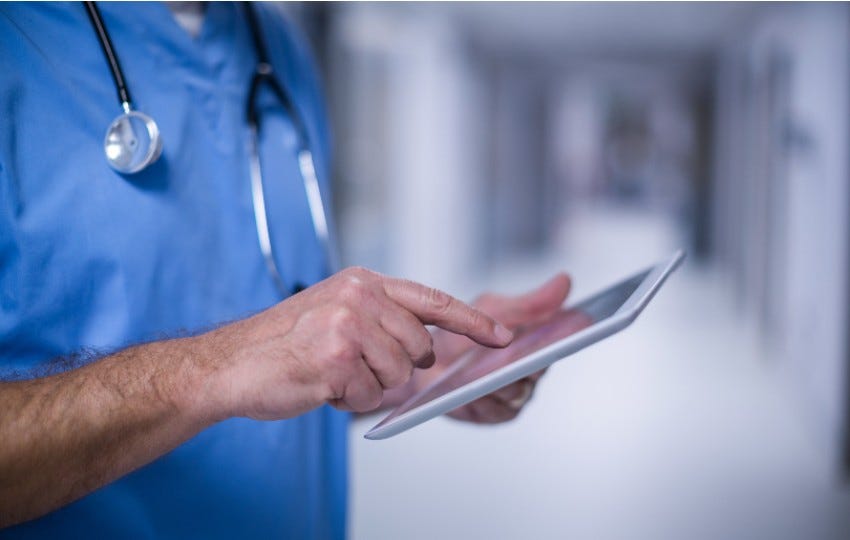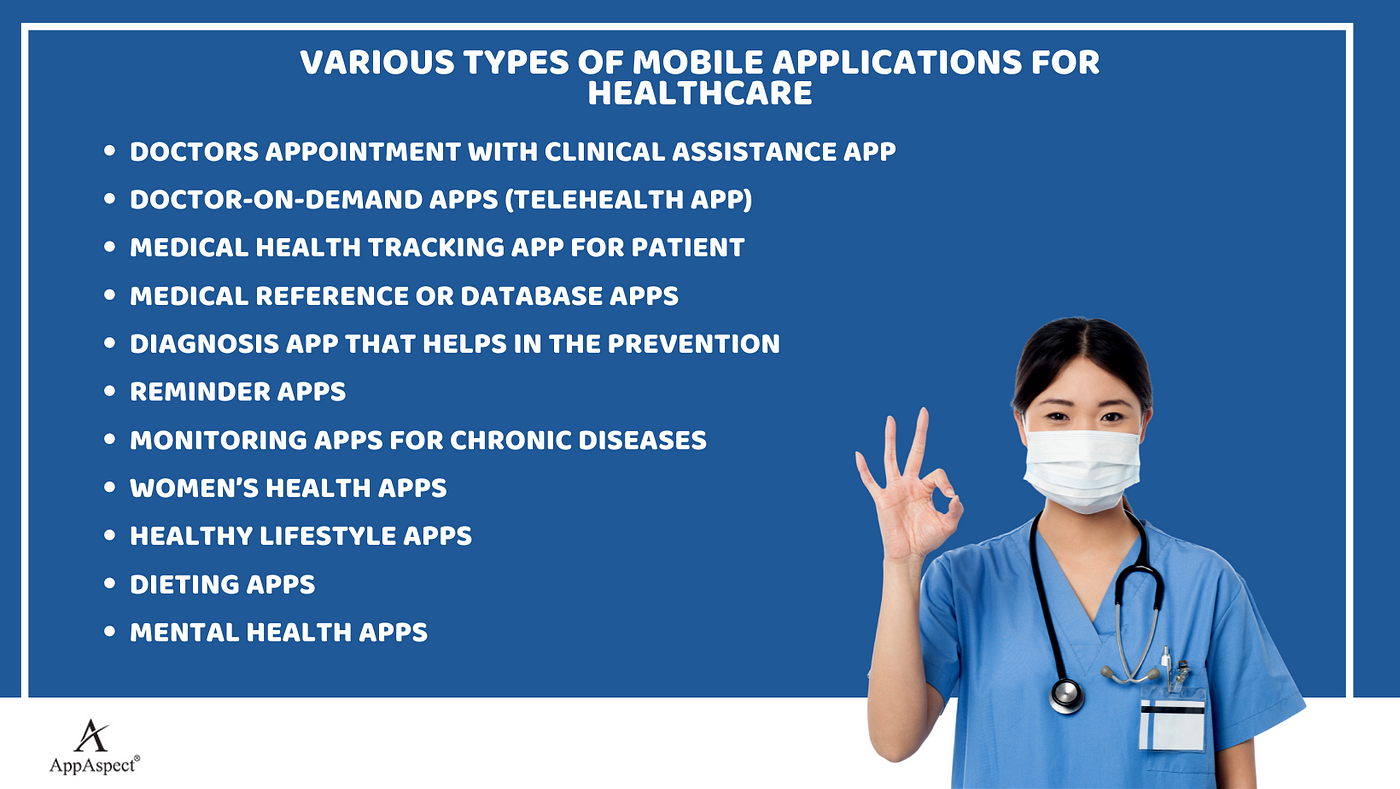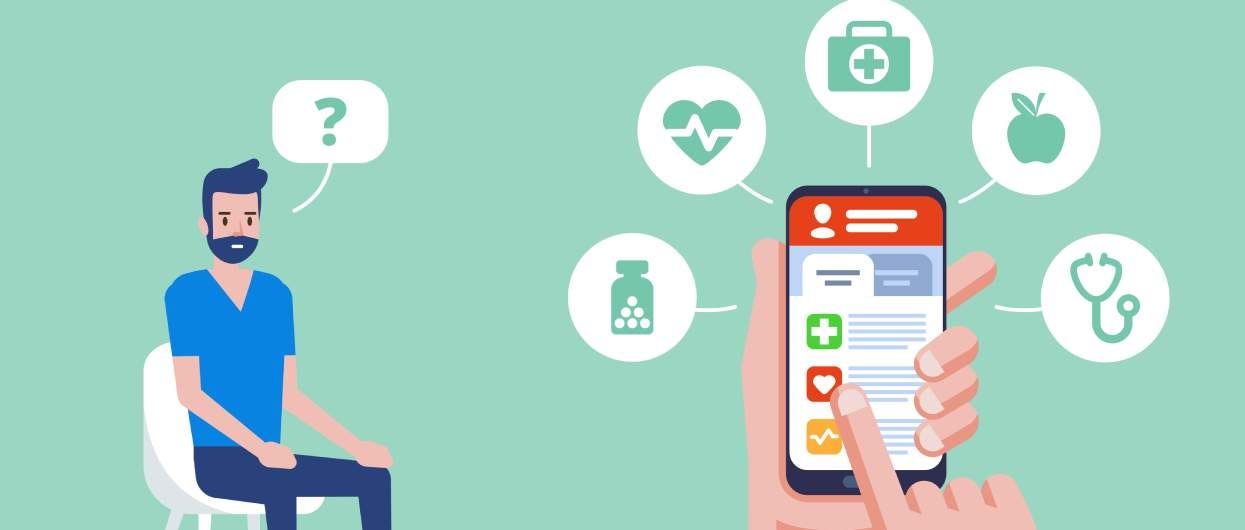
Have you heard of the term ‘mHealth’? Over the last few years, mobile technology in healthcare is evolving. And has rapidly proliferated too. mHealth refers to mobile phones and other technology devices in the healthcare industry. mHealth is helping the healthcare industry in several aspects of communication, clinical data update, and monitoring patients. Mobile technology is enhancing clinical productivity as well as non-clinical efficiency. This is not only helping the clinical experts but is also helping in improving patient education.
What exactly is mobile health (mHealth)?
You must have observed that many people nowadays are using several digital gadgets such as wearables, smartphones, tablets, and other devices for healthcare purposes. Aside from patient care mHealth also involves these wearables and devices designed for maintaining a healthy lifestyle and fitness.
Now there are several mHealth apps available now with different purposes and motives to achieve in the healthcare aspect.

Few benefits of mHealth technology
Benefits related to mHealth systems, devices, and patients are as follows -
- Patients are getting more personalized treatment through these apps from physicians.
- Improved communication which is faster and easy between patient and physician.
- Easier collaboration with different labs and specialists.
- More accurate diagnostic and treatment of disease.
- The insurance claims of patients are more transparently followed.
- Time saved through reduced time spent on report and file filing.
- Health reports and the history of patients are easily recorded and maintained through digital health records.
- A streamlined workflow process takes place.

Different ways in which mobile technology is used in the healthcare industry
- Help patients in acute conditions — there are several acute conditions like sore throat, rashes, allergies, cough, earache, headache, etc that are not severe and thus can be connected and treated by well-known physicians available on several apps available 24/7.
- Virtual visits conducted by nurses and physicians — some chronic devices always need regular checkups such as diabetes, hypertension, etc. these regular checkups are carried out through virtual meets in more efficient and effective ways to review and upgrade medications.
- Reminders and appointments — patients are reminded of their checkups through regular text messages. This helps the patient to be alert and keep up with their checkups and track their meetings with the physician in today’s busy lifestyle. As well as the patient himself can book appointments.
Sometimes moms are also reminded of their child’s pediatric checkups by these messages. These appointments can be confirmed, and you can pay the fees directly from the app.
- Physiotherapy apps — patients who have undergone certain surgeries or accidents need some workouts and exercises to follow. There are apps available keeping several exercises that specific patients need to follow and these apps help them to recover.
- Surgeon and patient progress tracking apps — there are even apps available that keep the records of patients’ recovery pre and post-surgery. Certain questions are asked through this prescribed mobile app that gathers the information for monitoring the patient’s progress. At regular intervals of time meetings are set up through these apps with patients.
- Fitness trackers — there are wearables available now that count your daily steps, your weight, heart rate, blood pressure as well as how many miles you run. Isn’t it great to analyze these details through a wearable? This helps to keep track of one’s fitness journey. You can diagnose some illnesses through just wearables and devices we are more attached to in this digital era.
Various types of mobile applications for healthcare

Various types of mobile applications available for healthcare in this era of digitalization are as follows -
- Doctors appointment with clinical assistance app
- Doctor-on-demand apps (Telehealth app)
- Medical health tracking app for patient
- Medical reference or database apps
- Diagnosis app that helps in the prevention
- Reminder apps
- Monitoring apps for chronic diseases
- Healthy lifestyle apps
- Women’s health apps
- Dieting apps
- Mental health apps

How is mobile technology along with the healthcare industry coming together to help the patients as well as doctors?
We can see several different industries leaning towards the world of digitization and so is the healthcare industry. With digitization, the healthcare industry has taken a more patient-centred approach which has made the whole process of patient treatment seamless. And with the seamless process, has included everything all from buying medical products, following the path of a healthy lifestyle, and having well-qualified physicians.
This technology has also made it a hassle-free process for doctors indeed. They can keep up with your history, reports, and documents even related to health insurance cards and other information without worrying about the paperwork error.
One of the major aid of this is in emergency cases! Facilities in healthcare that handle emergencies are much more efficient. Imagine in an emergency case doctor gaining all the history and updates of the patient through the mobile device and handling the case pro efficiently and fastly rather than wasting time on knowing everything about the past for further treatment. As the doctor will have all the crucial data sent on time the treatment will take place in time.
Also Read: How mobile apps are filling the gap between technology and healthcare.
How is this mobile technology helping in the betterment of the healthcare industry?
Medical reports are easily accessible
Medical reports are now easily accessible for both patients and doctors from any time and anywhere. This has made not very necessary visits to healthcare clinics stop. Rather patients and doctors can communicate online and make medical decisions faster for the same.
This resulted in precise reports
Sometimes there can be chances of some wrong judgment in reports but due to the application of machine learning and data analytics in healthcare there are negligible chances of error and correct reports can be provided to a patient.
Monitoring a patient’s health from a distance
Patients can observe their own activities through the wearable bands available as mentioned earlier. So there is more distance created between patient and doctor. Gone are the days when you needed to check your weight from a doctor. Now you can monitor all this basic information through the wearable.
Now your physical visits to a doctor are converted into digital visits. There are even doctors available 24/7 on certain apps without the need for an appointment. Even home healthcare is available. Elderly people or people with different disabilities have more benefits from it. Or people that underwent surgeries and cannot travel.
Payments are done more easily
There were days when people used to stand in long queues for hours to pay their hospital bills. But now due to mHealth applications, this has changed into a highly secured payment method through mobile technology instantly.
Conclusion
There is no doubt that the introduction of the healthcare industry in this digital era has been for good. Now, these mobile applications and wearables play a significant role in the healthcare industry for sure. And of course, the healthcare industry developers are going to elevate this even further in the future as it has a high potential for development.
This mobile technology is used by everyone in the healthcare industry for example doctors, nurses, specialists, patients, lab professionals, family members, etc.
This has upgraded the overall service quality of healthcare service. And hence, healthcare systems are more efficiently involving the use of these techniques in their routine to provide the patient’s accurate reports, easy ways of communication, faster diagnostic and medical treatment, and effective & personalized treatment.
























